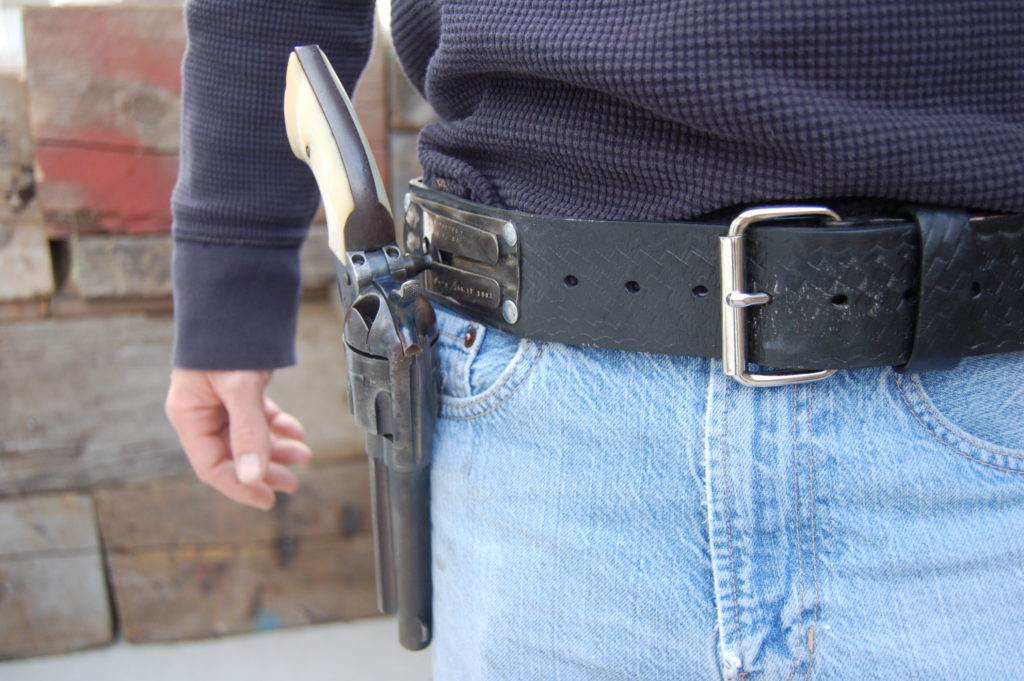
Buying a Handgun
As one of the few gun-friendly states in the New England region, New Hampshire does not have many laws regarding purchasing firearms. There is no license or permit required to buy a handgun, and the laws on purchasing one are just the default federal requirements. To buy a handgun, you must:- Be 21 or older;
- Provide state ID; and
- Have a background check performed by a licensed firearms dealer.
But that’s not all…
Even if you meet all the other requirements above, there are situations where you will still be prohibited from owning a firearm. You cannot own a firearm if you:- Have been convicted of a crime punishable by imprisonment for over a year;
- Are a fugitive from justice;
- Illegally abuse controlled substances;
- Have been adjudicated as mentally defective of incompetent, or have been committed to a mental institution;
- Are an illegal alien;
- Are a former US citizen who has renounced his citizenship;
- Were dishonorably discharged from the US Armed Forces;
- Are subject to a restraining order;
- Were convicted of a misdemeanor crime of domestic violence.

A Note for Antique Collectors
There’s some good news! If the handgun you are looking to buy qualifies as an antique firearm, you can avoid all of the requirements that go with buying firearms and just treat it like any other item you would buy from a store. An antique firearm is defined as: any handgun “utilizing an early type ignition”, such as flintlocks, percussion and pin fires, and do not utilize centerfire or rimfire cartridges. This means that any replicas of antique firearms would also qualify, as long as they use the types of ignition listed above.And some good news for the kids!
For anyone under 21, New Hampshire does have one state law regarding handguns that you’ll want to pay attention to: it is illegal to sell or give a handgun to a minor (someone under 18) unless it is from a parent or guardian. That means your parent or guardian can pass on a handgun to you before you turn 18! So be nice to your parents and maybe they’ll give you the family 1911 for your 15th birthday!Don’t forget about long guns!
When you’re out buying that new Glock, don’t forget to pick up a rifle while you’re at it! The requirements for buying a long gun are slightly different from the ones for handguns, but actually let you get your hands on that rifle even sooner than you would be able to buy a pistol. And just like with handguns, no license or permit is required to buy a long gun. To buy a long gun, you must:- Be 18 or older;
- Provide ID; and
- Have a background check performed by a licensed firearms dealer.
Where can you use your gun?
Once you’ve got your shiny new guns, you’ll probably want to show it off! Luckily, the Granite State doesn’t require a permit to carry your firearms, either openly or concealed. As long as you are legally allowed to own the gun, you can carry it however you want! Of course, even though open carry is allowed, it’s a good idea to be aware of your surroundings. You don’t want to be the only person openly carrying your firearms somewhere and draw any unwanted attention to yourself. If everyone else is carrying, then go ahead and show off your new rifle to all your friends! (But don’t point it at them!)
Headin’ down the highway
Transporting your firearms is a little tricky. Even though the state allows for permitless open and concealed carry, the firearm must be unloaded. Unless you have a permit to carry concealed, you can only transport unloaded firearms in a vehicle. Handguns can be kept anywhere in the car, either on the passenger seat next to you, in a case, in the trunk, or in a holster. For long guns, you’ll need to make sure they are in a gun rack, gun case, or in the trunk. Unloaded firearms means there cannot be a round in the chamber, or a mag in the gun. Essentially, if there is ammunition in the gun, it is considered to be loaded. If you are on a snowmobile, an Off-Highway Recreational Vehicle (OHRV), like an ATV, utility-terrain vehicle, etc., or a trailer being towed by any of those vehicles, your firearms must be unloaded. Regardless of whether the vehicle is parked or moving, the firearms must be unloaded. Unloaded means no rounds in the chamber, and no mags in the gun either. Basically, you will need to have the firearm separate from any ammunition to be considered “unloaded”. And because it’s New Hampshire, you also can’t have a loaded firearm when you’re on a boat or anything being towed by a boat. No fishing with your .22. Sorry.
When You Can Use Your Guns
Hopefully the only time you’ll ever use your firearms is at the range or a competition, but they are also tools of self defense. New Hampshire law accounts for this.Defending Your Castle
Under New Hampshire law, you can defend yourself with deadly force (i.e. your gun) when you are in your home, i.e. your “castle”. You are justified in using deadly force as long as you reasonably believe someone is:- About to use deadly force against you or someone else;
- Likely to use force against someone while committing or attempting to commit a burglary;
- Commiting or about to commit kidnapping or a forcible sex crime (rape, etc.); or
- Is likely to use force while committing a felony against you in your home or property.

Standing Your Ground
Here is where things get a little confusing. Many states have a “stand your ground” law, which basically says you can defend yourself with deadly force even if you are outside of your home and out on the town. New Hampshire sort of has a “stand your ground” policy. You cannot use deadly force to defend yourself or another person from deadly force if you know that you or the other person can with complete safety:- Retreat from the encounter;
- Surrender property the person is demanding a right to; or
- Comply with a demand to not do something you aren’t required to do in the first place.






